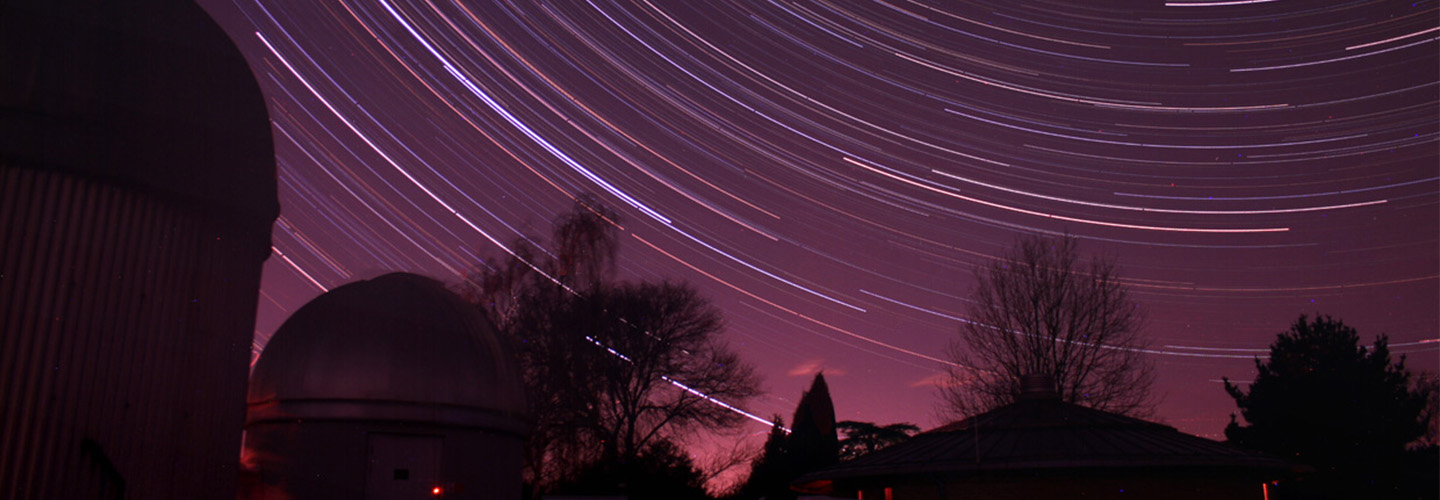Sign up for updates
Interested in studying at the University of Hertfordshire and want to sign up to our mailing list to learn more about our facilities, living in the UK and student life? Use the form below and our team will also keep you informed of key updates such as events near you, applications opening and more!
BSc (Hons) Astrophysics
£2,000 scholarship available with the ‘Mathematics and Physics’ scholarship.
Key information
-
Typical offer:
Entry requirements -
Fees: See below
Full details -
UCAS code: F501
-
Institute code: H36
-
Study abroad option
-
Work placement option
Find out more
Why choose this course?
- 2nd in the East of England for physics and astronomy (Complete University Guide, 2024)
- Learn in one of the best equipped teaching observatories in the UK
- New modules include a Machine Learning option
On our BSc Astrophysics degree, you will study the cosmos in all its wonder, gaining a detailed physical understanding of how the Universe works. We put a lot of emphasis on understanding the physical and mathematical principles behind astrophysical phenomena.
You will also gain considerable hands-on experience of astronomical observations at our dedicated teaching observatory, beginning your studies there only a few weeks after commencing your degree with us.
During your second and third years you will specialise in more advanced astrophysical topics, including the physics of the solar system and extrasolar planets, cosmology, and star formation and stellar evolution. We also offer a range of options in your final year, including learning how to plan space missions in the Space Dynamics module and the flight dynamics of rockets in the Rocket Performance and Propulsion module.
You will also carry out a final year investigative project in a cutting-edge area of Astrophysics research. You will be closely supervised and guided by one of our experienced researchers in the Centre for Astrophysics Research. Previous projects have included mapping the Orion Nebula with our telescopes at Bayfordbury, studying planetary systems with the Herschel Space Observatory, and modeling high energy jets from galactic nuclei.
If you’re continuing on our MPhys programme it’s possible to extend your project into your MPhys year. We also have an innovative strand of industrial projects supported by the Institute of Physics, that give you direct experience of working in industrial research.
What's the course about?
Astrophysics is the study of the physical processes that shape the structure and evolution of the universe. On this astrophysics degree, you will seek to provide answers to fundamental questions about the origin and evolution of stars, planets and galaxies, as well as the universe itself.
You’ll have the chance to study the cosmos in all its wonder, and gain a detailed physical understanding of how the universe works. The School’s vibrant research programme covers a wide range of topics from extra-solar planets to high-energy astrophysics and galaxy evolution and feeds into the course content. You’ll make extensive use of our superbly equipped observatory, and will also have the exciting opportunity to spend a year at a major astronomical research centre or an international observatory.
Your main campus is College Lane
This is where the creative arts, science and health-related subjects are based. This means you’ll share the campus with future nurses, scientists, artists and more. You can use the common rooms to relax with friends, work out in the 24-hour gym or have a drink in our on-campus pub or cafes. We also have restaurants for you to eat in or grab something on the go. Our Learning Resources Centres are open 24/7, which means you can study whenever suits you best. Want to pop over to the other campus? You can take the free shuttle bus or walk there in just 15 minutes.
New School of Physics, Engineering and Computer Science building now open
Learn in our new state-of-the-art building called Spectra, featuring a variety of interactive learning spaces. Benefit from two brand-new physics teaching labs.
Spectra is home to the Centre for Astrophysics Research, Centre for Climate Change Research and the Wolfson Centre for Biodetection and Instrumentation Research, which have been created in response to the most pressing global challenges. You will also benefit from our Academic Support Hub, which is aimed at helping you build your employability and academic skills. Plus, have access to industry mentors who will provide you with pastoral support, vocational guidance, and career progression opportunities.
Spectra will also provide space to collaborate, with plenty of workshops, social and meeting spaces available. Even better, the building has been designed with the University’s net zero carbon target in mind, and forms part of our plan to replace or upgrade older sites that are energy inefficient.
What will I study?
We take pride in our student-focused approach to teaching astrophysics. With one of the best student-staff ratios in the country we are able to put our focus on you as an individual and give you the support that you need to reach your full potential as an Astrophysics graduate. Our graduates are in a wide range of careers, from scientific research to teaching and industry.
We use a variety of teaching methods, ranging from small-group tutorials, to lectures and practical classes. A key feature is our observatory at Bayfordbury, where we teach you how to carry out astronomical observations in as close to a professional setting as we can make it. Our typical intake of students is around 40-50 in each year (across the department for physics, astrophysics and maths), which means that our class sizes are small enough so that your lecturers will know you by name. We place particular emphasis on transferable skills, employability and project work throughout the degree.
You will meet your personal tutor on a regular basis in small-group tutorials, which are a great way of reinforcing the material that you learn in lectures. We also offer a wide variety of support throughout your degree, from your lecturers, the School’s Maths Centre and peer support from our student proctor scheme.
'I would not be where I am without the opportunities that opened up whilst studying at the University of Hertfordshire. From extracurricular projects, to connections with other world ranking Universities, I can but thank the university for their guidance and support that kick-started my career.'
Check out our student blogs
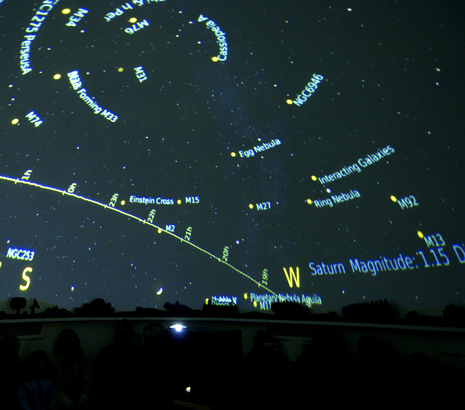
Student Blogs
Shafali - My typical day
My typical day
I begin a typical day by commuting in from London using the UNO buses; a bus service provided by the University. With UNO buses you can get discounted UH (University of Hertfordshire) student tickets with an accompanying student ID. They offer single, daily, weekly, monthly, termly or yearly tickets.
Once at the university there is the Forum which houses the student shop (the university’s convenience store), subway, and other places to grab a bite to eat which is where I usually buy my lunch from or if it’s lunchtime I sit in and eat at the student forum restaurant, which serves hot food, with my friends.
I then have anywhere between one to four hours of lectures, tutorials and practicals (depending on how compact my timetable is), usually with at least a one-hour break in between. All lectures are an hour-long, and they can be in the form of single or double lectures with a small break in between the doubles. Lectures consist of listening to the lecturer and making notes, tutorials consist of going through a set of pre-set questions, which reflect the previous week’s taught material, that is expected to be completed and ready beforehand and finally, practicals are usually lab-based. Once the teaching day is done, I spend an hour or two going through notes, completing assignments.
After this I have the evening to hang out with friends such as at the on-campus common rooms where they have pool tables and table tennis or I head home, again using the UNO buses.
And that’s a typical day as an Astrophysics student. :)

Student Blogs
Shafali - Why I love Astrophysics
What I love about my course
Having had the privilege of studying Astrophysics at two universities I can say that the education is very similar, this, of course, can only be said for this degree but what really differentiates the universities are by what they have to offer rather than solely the teaching aspect.
At Herts, Physics and Astrophysics are offered, both at BSc and MSc levels which allows for a choice. This freedom continues onto the module choice in each year which I am particularly fond of as I prefer the mathematical modules offered here. Astrophysics is slightly more restricted than Physics as you must choose at least one Astro module however we do get to choose at least one module per semester, and in the third year we largely choose our modules where there is a range of options, scaling from theoretical physics to mathematical physics to engineering modules, the choice is yours!
On top of this, the grade weightings for assignments and exams are mostly 40/60 for physics modules and 20/80 for mathematics modules along with modules which are worth 100% coursework such as Planetary Systems and Programming, which means less pressure when it comes to the exam period.
I also love the support available here at Herts, academic and otherwise. Lecturers are sure to have office hours available for students to answer any questions and have regular drop-in sessions with academics to help with assignments or for any queries. Furthermore, each year has a student rep elected by the students, one person each for Physics and Astrophysics, who are there to help get across any concerns students may have about the course or anything else that might need bringing to attention so your voice is always heard and valued.
I especially love the emphasis on graduate prospects, internships, working abroad and placement years here at Herts. In the Physics, Astronomy and Mathematical school (PAM) we have our own dedicated career advisor who sends us regular emails about prospective jobs, internships, and placement opportunities available to our school and how we can apply to this. In the second year, all students must complete a non-credited module called Career Planning and Development which is a highly valuable module designed to further our skills even after we have graduated; focusing on employability alongside gaining a degree which will benefit in the long run.
Finally, Go Herts is a recognised award which helps you stand out from the rest in prospective job applications, it is offered to students who have engaged in a range of extra-curricular activities outside of the assessed part of your degree (such as a part-time job) which is awarded to you at the end of your programme of study which is an added recognition just for doing what you would do anyway!
That’s what I love about Herts!

Student Blogs
Shafali - Why I chose Herts
Why I chose Herts
I am a second-year transfer student, so I didn’t apply as a typical first-year student and I didn’t come through Clearing. The process to transfer was easy and straight forward with the University of Hertfordshire; applying so late in the year meant it was difficult to guarantee a place on any course. However, Herts was very accommodating and gave me the green light after just my first conversation with my programme coordinator after confirming that I passed the grade entry requirements. I emailed over my HEAR (Higher Education Achievement Report) report and soon I was officially enrolled as a second-year Astrophysics student.
I chose Herts as it has a lot of accessibility which helps my course. For example, the Bayfordbury observatory has a range of telescopes that are available to use throughout your degree. Along with this, Herts is ranked well on the Physics and Astronomy tables, being in line with some of the Russel Group universities. But most of all the support and graduate opportunities and prospects interested me.
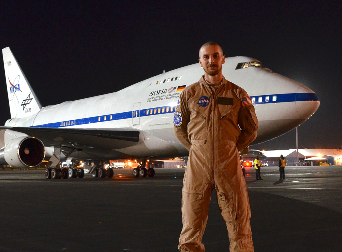
Alumni Stories
Dr Samuel Nathan Richards
Meet Dr Samuel Nathan Richards, who has taken his degree out of this world. Samuel currently works for NASA as the Mission Director & Instrument Scientist for NASA/DLR mission: SOFIA in California.
Read more stories BSc (Hons) Astrophysics| Current job role | Mission Director & Instrument Scientist for NASA/DLR mission: SOFIA |
|---|---|
| Year of graduation | 2012 |
| Course of study | BSc (Hons) Astrophysics with Sandwich Year |
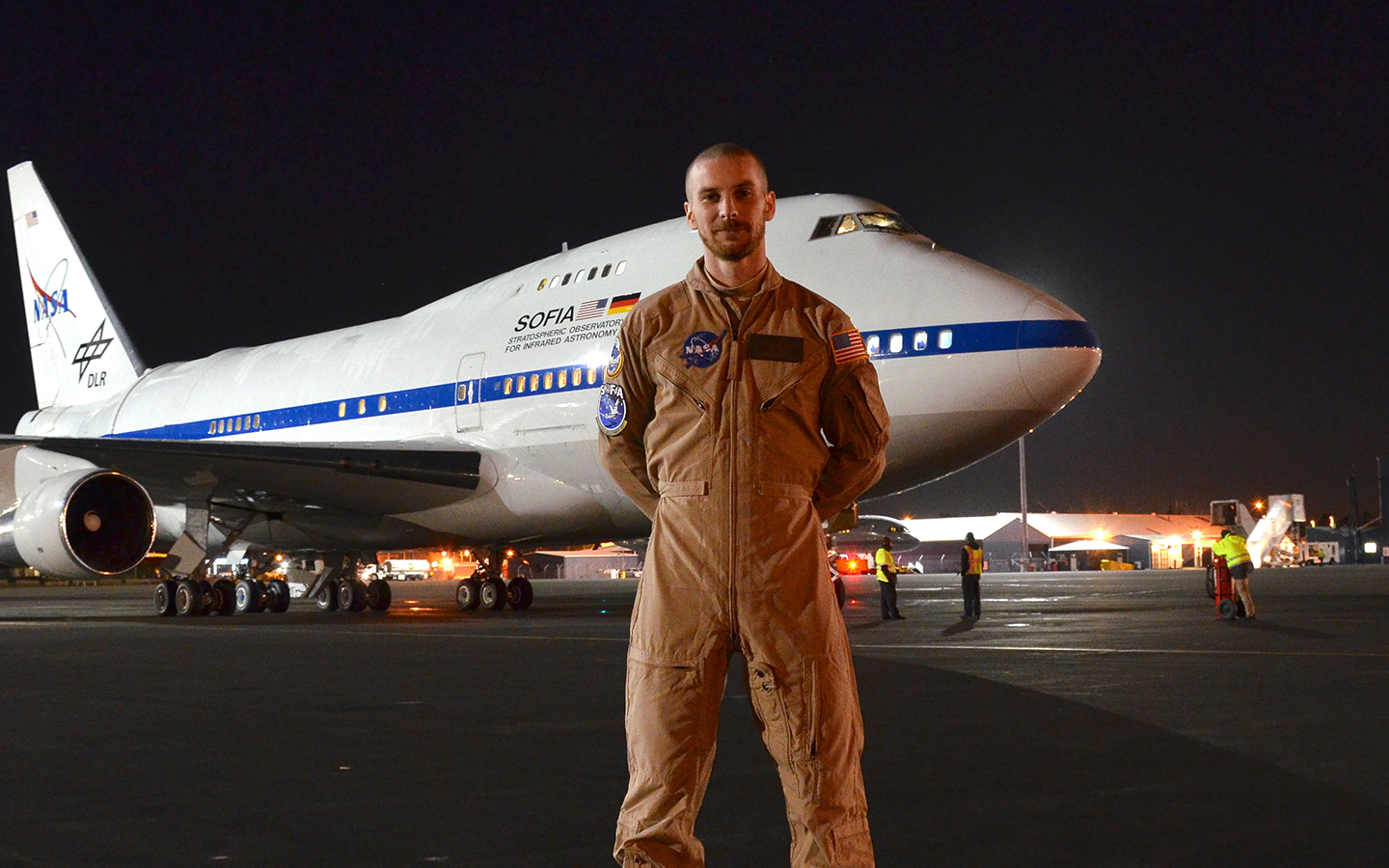
Global opportunities
Samuel currently works as the Mission Director & Instrument Scientist for the SOFIA mission, based in Palmdale, California at the Stratospheric Observatory for Infrared Astronomy. Nathan has worked toward this role since completing his degree and a PhD in Astrophysics at the University of Sydney, Australia.
He says, 'I would not be where I am without the opportunities that were available while studying at the University of Hertfordshire. From extracurricular projects, to connections with other world ranking universities. I'm thankful to the University for its guidance and support that kick-started my career.'
Samuel decided to study at the University after seeing a promo video in sixth-form that featured the Bayfordbury Observatory. He says, 'When I discovered how strong the University's Astronomy department was, I felt that this was an environment that I could thrive in.'
'The lecturers were world-class, active astronomers, so each class was dynamic to the ever-changing knowledge of their respective fields of research. Their willingness to accept keen students for extracurricular research projects gave me early first-hand experience of the career I was about to launch myself into. Their international connections opened a path for me to do a research year at the University of Sydney, where I would later return to complete a PhD!'
Just the beginning
Pursuing a career in astronomy is highly competitive but incredibly exciting. Opportunities in these industries are truly global and roles are very diverse. 'I didn't know I'd end up working at NASA, but I took all opportunities as they arose.' Samuel encourages new and current students to do the same. 'Find what you enjoy and do that, over money, status and fame. There are many routes to where I am now, my colleagues come from very different backgrounds: astronomy, electrical and mechanical engineering and computer science, and that is just within my role, let alone all the other roles under NASA's umbrella.'
'I'm still learning, developing and taking on new opportunities!'
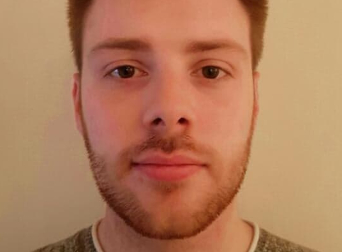
Alumni Stories
Thomas Owen
Meet Thomas Owen who discovered his passion for analytics while at university. He is currently a Sales and Capacity Planner at Ocado.
Read more stories BSc (Hons) Physics| Current job role | Sales and Capacity Planner |
|---|---|
| Year of graduation | 2015 |
| Course of study | BSc (Hons) Physics |
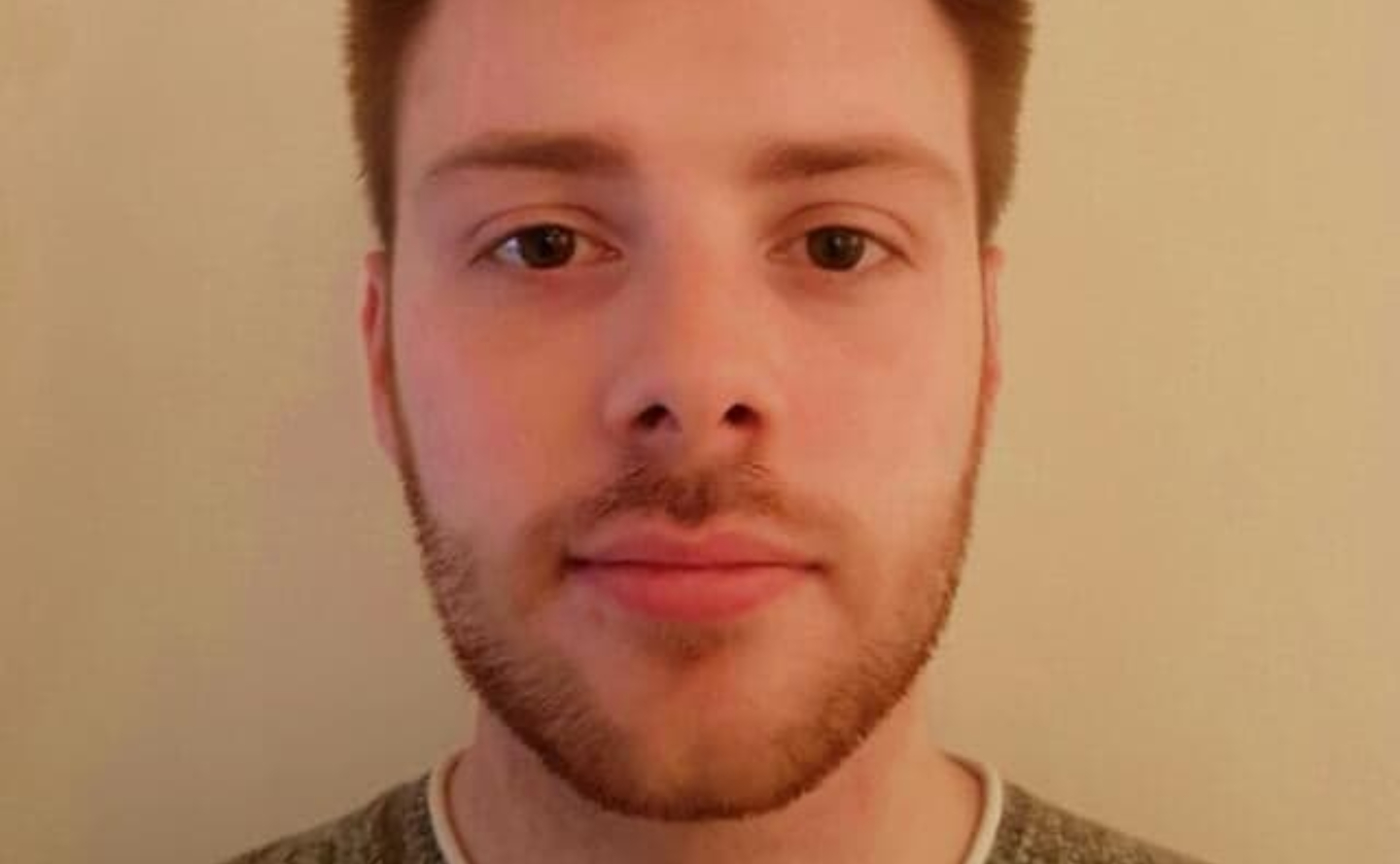
University life and experience
Thomas initially decided to come to the University of Hertfordshire based on our excellent Physics facilities, including Bayfordbury Observatory. While visiting the campus at an Open Day he was impressed with the amount of support available and our ranking in league tables for Physics evidenced in the expertise of our lecturers.
Throughout his time at the University, Thomas felt fully supported. He says, ‘There was never a point where I felt I had to go it alone and help was always on hand if things got tough. Lecturers took the time to meet with me personally if I had questions and the 24/7 LRC had everything I'd need for self-study and exam practice.’
After graduating, he has realised that the challenges he faced throughout his degree have fully prepared him for his working life and future career.
‘My studies helped me prepare for working in busy, dynamic environments by challenging me all the time. Whether it was working on a big project, my dissertation, or preparing for my exams – my experiences encouraged me to take challenges head on.’
While he worked hard throughout his time at university, he is pleased that it paid off. He explains that handing in his final year dissertation and being awarded a first made it all worthwhile.
Future aspirations
Thomas initially did not think that he would be working in online grocery and retail, however, he has found the industry to be challenging, rewarding and fast-growing. He explains that he likes the variety of roles and ‘different areas of aspire to work in.’
